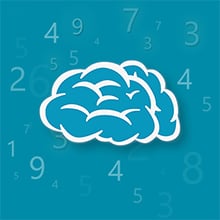
Thinking Games
Discover 107 amazing thinking games. Play for free and have fun!
About Thinking Games
What are Thinking Games?
Thinking Games, also known as brain games or puzzle games, are a genre of video games designed to challenge the player's cognitive abilities. These games emphasize problem-solving, logic, strategy, and critical thinking rather than fast-paced action or reflex-based gameplay. The primary objective of Thinking Games is to engage the player's mind, requiring them to analyze situations, solve puzzles, plan strategies, or make decisions that impact the outcome of the game.
Thinking Games can range from simple puzzles to complex simulations that require players to think several steps ahead. They are popular among players who enjoy intellectual challenges and prefer games that require more mental engagement than physical coordination.
Types of Thinking Games
Puzzle Games:
Puzzle games are the most common type of Thinking Games. They include a wide variety of challenges, such as matching, sequencing, and logic puzzles. Popular examples include Tetris, Sudoku, and Candy Crush.
Players must solve puzzles by arranging pieces, finding patterns, or completing sequences. These games often have increasing difficulty levels, requiring players to think more critically as they progress.
Strategy Games:
Strategy games require players to plan and execute tactics to achieve a specific goal. They often involve resource management, territorial control, and long-term planning. Examples include Chess, Civilization, and StarCraft.
Players must make decisions based on the available resources and the actions of opponents. Success in these games depends on anticipating the opponent's moves and adapting strategies accordingly.
Simulation Games:
Simulation games replicate real-world activities or systems, allowing players to experiment and make decisions in a controlled environment. Examples include The Sims, SimCity, and RollerCoaster Tycoon.
Players manage various aspects of a simulated world, such as city planning, life management, or business operations. The goal is to optimize outcomes based on the rules of the simulation.
Logic and Reasoning Games:
These games focus on logical deduction, problem-solving, and reasoning skills. They include titles like Portal, Professor Layton, and The Witness.
Players must use logic and reasoning to solve complex puzzles or navigate through challenges. These games often involve abstract thinking and require players to think creatively to find solutions.
Trivia and Quiz Games:
Trivia and quiz games test players' knowledge across various subjects. Examples include Jeopardy!, Who Wants to Be a Millionaire?, and Trivia Crack.
Players answer questions or solve riddles to earn points. These games can be competitive, with players competing against others or the clock.
How to Play Thinking Games in the Best Way?
Take Your Time:
Rushing through Thinking Games can lead to mistakes. Take your time to analyze the situation, understand the problem, and consider all possible solutions before making a move.
Practice Patience and Persistence:
Many Thinking Games are designed to be challenging, and success often requires multiple attempts. Be patient and persistent, learning from each mistake to improve your strategy.
Break Down Complex Problems:
For games with complex puzzles or strategies, break down the problem into smaller, more manageable parts. Focus on solving one aspect at a time to avoid feeling overwhelmed.
Learn from Mistakes:
Each failure in a Thinking Game is an opportunity to learn. Analyze what went wrong and adjust your approach accordingly. This iterative process is key to mastering these games.
Think Several Steps Ahead:
In strategy and logic games, try to anticipate future challenges and plan accordingly. Thinking several steps ahead can give you an advantage, especially in competitive games.
Stay Calm and Focused:
Thinking Games require concentration and a clear mind. Stay calm, avoid distractions, and maintain focus to enhance your problem-solving abilities.
Use Hints Wisely:
Many Thinking Games offer hints or clues. Use them sparingly and only when you're truly stuck, as relying too much on hints can reduce the challenge and satisfaction of solving the puzzle on your own.
Attractiveness of Thinking Games
Intellectual Challenge:
The primary appeal of Thinking Games lies in the intellectual challenge they offer. Players are drawn to the mental stimulation and the satisfaction of solving complex problems or outsmarting opponents.
Skill Development:
Thinking Games help develop critical skills, such as problem-solving, logical reasoning, strategic planning, and decision-making. This educational aspect makes them attractive to players who enjoy learning and self-improvement.
Variety and Depth:
The genre offers a wide variety of games, each with its unique challenges and mechanics. This diversity allows players to find games that match their interests and skill levels, providing endless opportunities for engagement.
Replayability:
Many Thinking Games have high replay value, as players can approach the same problem in different ways or try to improve their performance. This makes the games enjoyable over the long term, as players can continually challenge themselves.
Relaxing Yet Engaging:
Unlike action-packed games that require quick reflexes, Thinking Games offer a more relaxed yet deeply engaging experience. Players can enjoy the game at their own pace, making it a great way to unwind while still staying mentally active.
Social and Competitive Aspects:
Some Thinking Games include multiplayer or competitive modes, allowing players to test their skills against others. This social aspect adds an extra layer of enjoyment, as players can share strategies, compete for high scores, or collaborate to solve puzzles.
Accessibility:
Thinking Games are often accessible to a wide range of players, regardless of age or gaming experience. Their intuitive controls and gradual difficulty curves make them appealing to both casual and hardcore gamers.




































